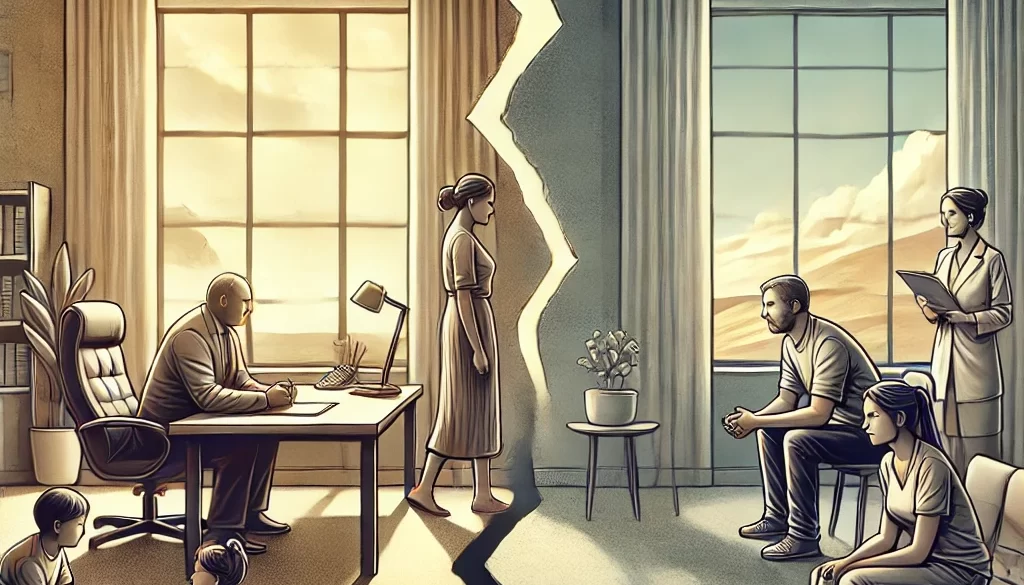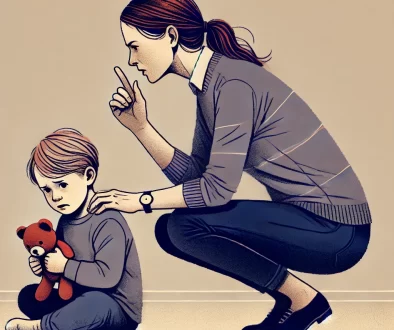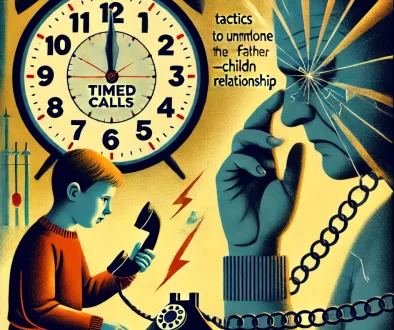Navigating the Maze: The Controversy of Therapy Approaches in Parental Alienation Cases
Parental alienation is a deeply complex and emotionally charged issue that wreaks havoc on families, leaving scars that can last a lifetime. As parents and professionals strive to address this phenomenon, one of the most contentious debates revolves around the most effective therapeutic approaches for treating parental alienation. Should it be reunification therapy, family counseling, individual therapy, or a combination of these? The answer isn’t straightforward, and the controversy surrounding therapy approaches highlights the complexities of navigating this challenging terrain.
Reunification therapy, often hailed as the primary intervention for parental alienation, aims to reunite the alienated parent and child through structured sessions facilitated by a trained therapist. Proponents argue that it provides a structured framework for rebuilding fractured relationships and addresses the underlying dynamics driving parental alienation. However, critics raise concerns about the potential for coercion and retraumatization, particularly if the child is resistant or unwilling to participate.
Family counseling offers a more holistic approach by involving the entire family in therapy sessions. Advocates argue that it promotes open communication, addresses underlying family dynamics, and fosters a supportive environment for healing. However, skeptics question its effectiveness in cases of severe parental alienation, where one parent may be actively undermining the therapeutic process or manipulating the child’s perceptions.
Individual therapy focuses on supporting the alienated parent and child separately, addressing their unique needs and challenges. Proponents argue that it provides a safe space for processing emotions, building resilience, and developing coping strategies. However, critics argue that it may neglect the crucial aspect of repairing the parent-child relationship and fail to address the systemic issues driving parental alienation.
The truth is that there is no one-size-fits-all solution to parental alienation, and therapy approaches must be tailored to the specific needs and circumstances of each family. What works for one family may not work for another, and flexibility and creativity are essential in developing effective interventions.
In navigating the controversy surrounding therapy approaches, it’s crucial to prioritize the well-being and best interests of the children involved. Therapy should focus on providing a safe and supportive environment for healing, fostering open communication, and rebuilding trust and connection between parent and child.
Ultimately, the goal of therapy in parental alienation cases should be to empower families to heal, rebuild, and move forward in a healthy and positive direction. By embracing a collaborative and client-centered approach, therapists can play a pivotal role in supporting families through the challenging journey of parental alienation, helping them navigate the maze and find a path toward healing and reconciliation.
I’m Randy Morano—a father, author, and staunch advocate for parental alienation awareness. My journey through the depths of parental alienation has transformed me into a passionate advocate, dedicated to shedding light on this overlooked form of emotional abuse.
As a survivor, I understand the profound impact of parental alienation firsthand. Through my writing and advocacy efforts, I aim to raise awareness, empower others, and provide support to families in need. Join me in the fight for change and hope.



